Pharmanza Herbal
Sustainability
Human beings heavily rely on the use of biodiversity, particularly plants. Since their origin, plants have played a crucial role in human survival. Medicinal plants have provided humankind with curative treatments since their earliest beginnings dating back to 8500 BC. Traditional Medicine and Ayurveda are two of the noteworthy practices which are still contemporary in their application.
Around the world, the demand for medicinal plant products is increasing rapidly which often creates pressure on natural resources and plant diversity. Being a leading herbal manufacturing industry, it is the onus on us to have a balanced harvest and supply of good botanicals, following global sustainability goals. The Pharmanza Herbal plays a significant role in the broader context of sustainability.
Sustainable Cultivation, Harvesting, Store Practices, and Group Farming
We believe in implementing good agricultural practices that minimise the use of synthetic pesticides and fertilisers, thereby promoting soil health and reducing environmental impact. Through cooperative farming and cultivation practices, we have successfully achieved resource, equipment, and infrastructure sharing among participating farmers. This collaboration leads to economies of scale, resulting in lower production costs per unit and making farming more economically viable for small and marginal farmers. Our shared investment in technology has increased productivity and efficiency. By collaborating in a cluster with agricultural communities in Gujarat, Maharashtra, and Karnataka, farmers are now working in a more resilient and sustainable agricultural environment.
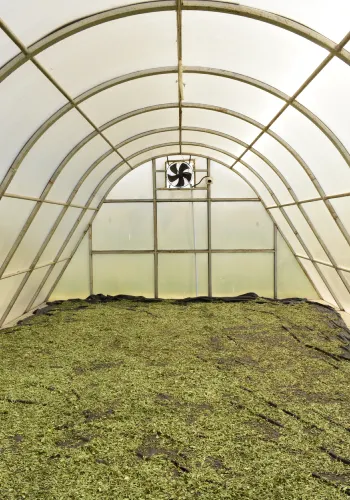
Plant Conservation and Sustainable Harvesting Practices
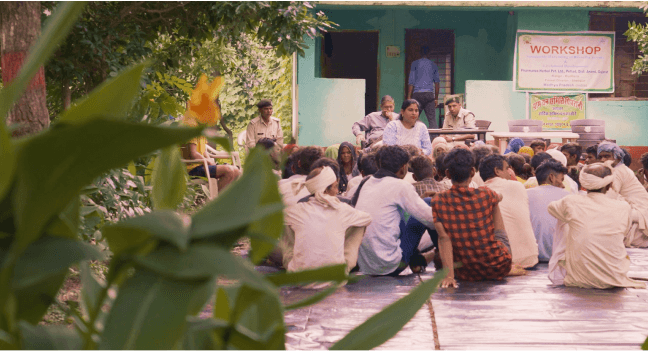
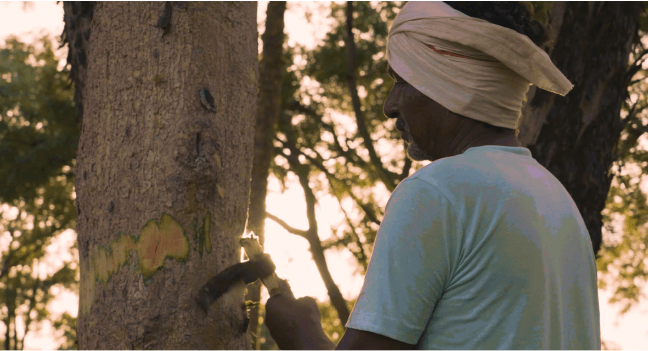

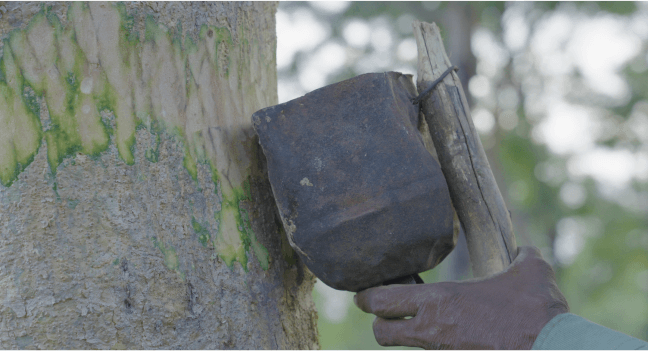
Traditional Oleoresin Trapping and Collection Process.
Training Programmes
A one-day training programme on the Voluntary Certification Scheme for Medicinal Plant Produce (VCSMPP) was facilitated by Pharmanza Herbal in collaboration with the Quality Council of India (QCI) and the National Medicinal Plant Board (NMPB).
This programme aimed to impart an understanding of the need and importance of Good Agricultural Practices (GAP) certification, as well as the structure of the GAP certification. The session was attended by farmers from the Anand area.
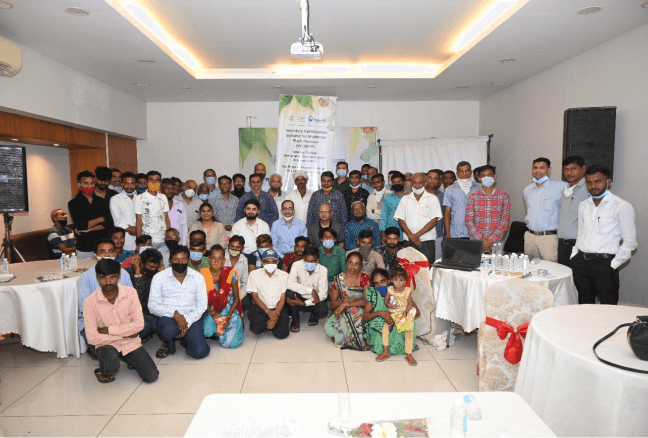
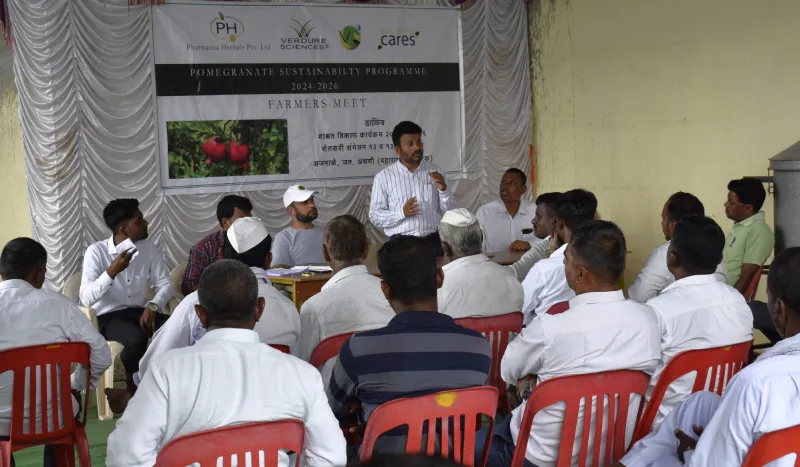
Sustainable Supply Chain and Farmers Clusters

Implementing Solar Energy – Step Toward Sustainability
Implementation - Solar Power
A significant step in minimizing our carbon footprint and promoting green energy projects is this solar installation. Our goal is to help create a sustainable future for future generations by using renewable energy.
Our goal is to promote sustainability, responsible consumption, and land stewardship.
Pomegranate Sustainability Programme
Our goal is to promote sustainability, responsible consumption, and land stewardship. In June 2024, Pharmanza Herbal launched the Pomegranate Sustainability Programme (PSP), targeting pomegranate growers in the Solapur, Belagavi, and Vijayapura districts of Maharashtra and Karnataka. This initiative aligns with the Sustainable Development Goals (SDGs), including Good Health and Well-Being, Responsible Consumption and Production, and Life on Land. The programme aims to reduce pesticide overuse, maintain soil and water health, provide quality germplasm, and encourage organic farming practices.
🌱 CSR in Action | Bringing Healthcare to the Doorstep 🚑
At Pharmanza Herbal Pvt. Ltd., we strongly believe that true growth is inclusive growth. We are proud to support the “Hospital at Your Door” initiative in collaboration with Shree Nityanand Swami Education Trust, Gokuldham – Nar, a meaningful healthcare project delivering free doorstep medical services to 32 villages across Anand and Kheda districts of Gujarat. Through this CSR initiative, Pharmanza Herbal is contributing towards:
✔ Access to primary healthcare in rural areas
✔ Support for elderly, women, and underserved communities
✔ Timely medical consultation and essential medicines
This glimpse of the branded ambulance van represents more than visibility — it reflects our commitment to community well-being and sustainable social impact. We look forward to continuing our journey of responsibility, compassion, and purpose-driven healthcare. 🤝 Together, we move closer to healthier communities.
Scientific Social Responsibility
#Academic Outreach: Students Visit to the PHPL (Shivaji University, Kolhapur)
Scientific Social Responsibility
#Academic Outreach: Students Visit to the PHPL (SP University, Anand)
Scientific Social Responsibility
#Academic Outreach: Students Visit to the PHPL (Parul University, Vadodara)
Scientific Social Responsibility
#Academic Outreach: Students Visit to the PHPL (Shri R.K Parekh and science college ,Petlad)
